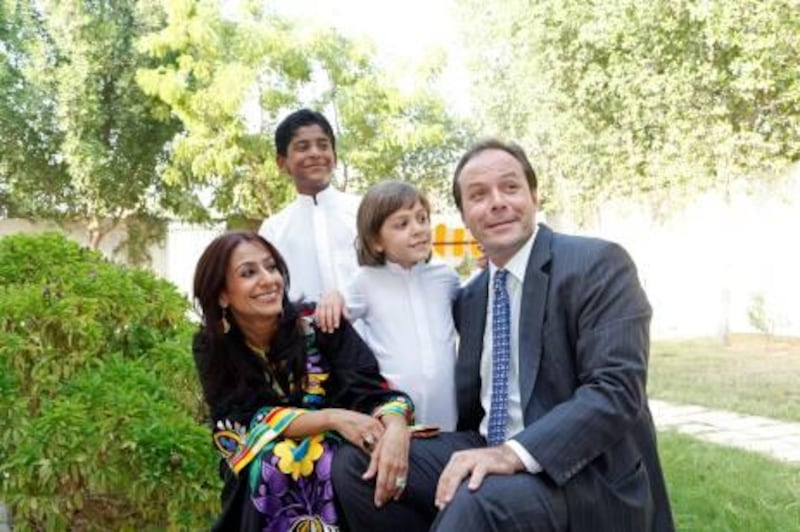A decree issued yesterday by the President, Sheikh Khalifa, gives children of Emirati women married to non-Emiratis the opportunity to apply for citizenship when they reach the age of 18.
Previously, citizenship could only be passed on through the father.
But in his statement, Sheikh Khalifa ordered ministries, government departments and all concerned authorities to give the children of Emirati women married to non-Emiratis the same rights as children of Emirati couples.
"Today is an Eid day for every Emirati woman," said Hala Kazim, 48, who has five children, one of whom is adopted.
The three from a previous marriage to an Emirati and the one adopted child all have Emirati citizenship. But her last child, seven-year-old Hassan, does not, because his father, Mrs Kazim's second husband, is Scottish-Egyptian.
"Now my baby will have the same rights as his siblings," she said. "I am jumping. You don't understand how amazing this feels. This changes a lot of Emirati women's lives and the lives of their children; it is not just about me and my husband."
The age criteria is "perfect", she added. "It doesn't matter before that. It is after 18 when a child needs it," she said. "I have been given free land, interest free loans, and now I am worry free over my child's future. Emirati women are truly lucky."
Mohammed Al Bolushi, 30, a child of an Emirati woman and a father who did not have any legal documents, said it was a problem he had personally experienced.
"I am a son of this country and I feel complete loyalty towards it," Mr Al Bolushi said. But "none of the Emirati families agree to marry off their daughter to me because I am not Emirati by documents".
Mr Al Bolushi, who is the oldest of nine children, said the lack of citizenship had affected many aspects of his life and the lives of many others like him, from marriage to being deprived of allowances, jobs and access to sports clubs.
But with the decree, he said, that would change.
“I shed a tear because of the extent of my happiness when I first heard the news,” he said. “I am part of this country and to become an Emirati citizen was one of my main ambitions.”
But most importantly, he added, the news would make his mother happy.
“She is always worried about us, but no longer,” he said. “As soon as I found out about the news I called her up and said: ‘Hello, mother of Emirati men’. She laughed asked me to pray and thank God.”
S?A, 21, whose mother is Emirati but whose father is Pakistani, said her battles to get the Emirati passport will finally have a happy ending.
“We tried to get the nationality before, but it hasn’t been easy. This new decree will change things and it’s a good step. Children who are from an Emirati mother or father are the same,” said S?A, an international relations student at the American University of Sharjah.
“Inshallah, this will help me when I graduate; I am a politics student and I want to serve the government,” she said. “I am interested in policy making, social and foreign affairs, and having an Emirati passport will help me get a job in the government sector.”
Hessa Tahlak, the director of development and research at the Dubai Women’s Establishment, also welcomed the decision.
“The cause of the children of Emirati women has long been a subject discussed at the Federal National Council and in other official circles, and a solution for those children, who are nationals of this country despite not having the legal documents, was necessary,” Mrs Tahlak said. “This was a dream for many, and today it has become a reality.”
Mrs Tahlak said the step by Sheikh Khalifa stressed the importance of women’s rights: “It is a message to the world that UAE nationals – men and women – are equal and are benefiting from many privileges.”
Dr Hussein Obeid, a sociologist, said the decree would help many children who had been searching for a sense of identity.
"Children of Emirati women have suffered a lot," he said. "They have lived in a society and took all its customs and traditions, but are rejected by it, which has caused a lack of identity. The feeling of rejection has devastating effects on a person."
wissa@thenational.ae
rghazal@thenational.ae
* With additional reporting by Amna Al Haddad






